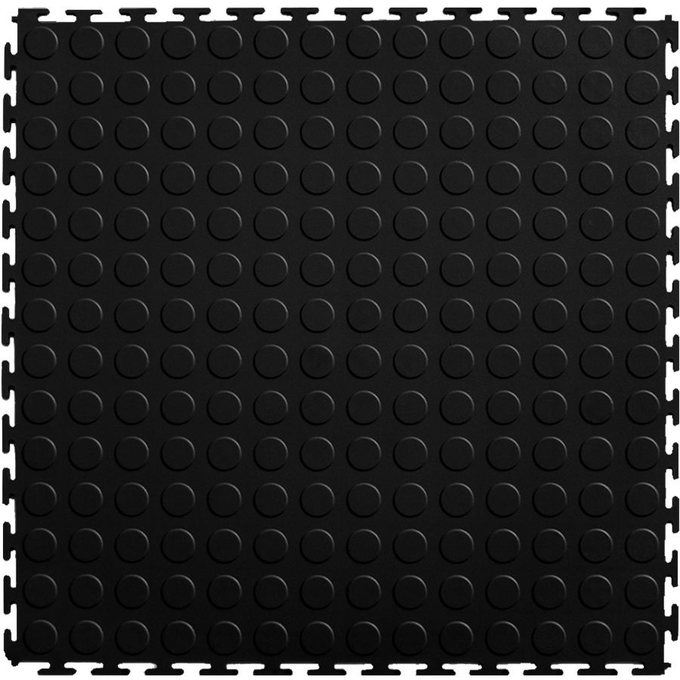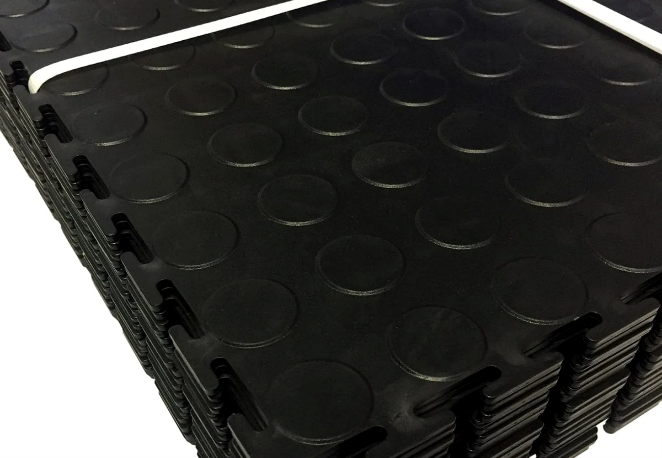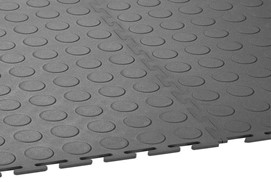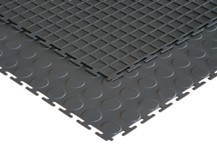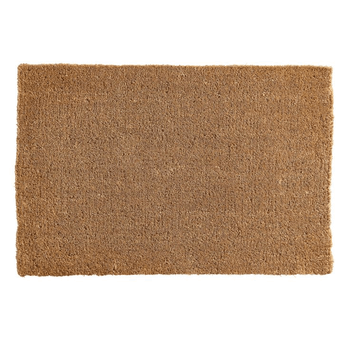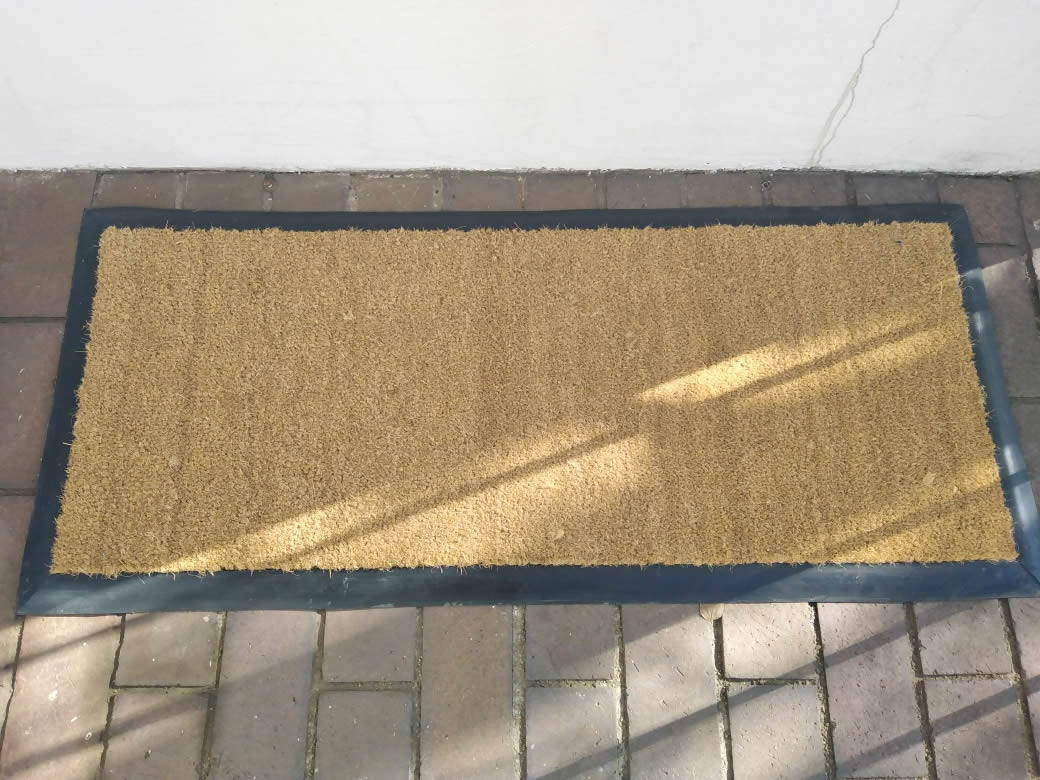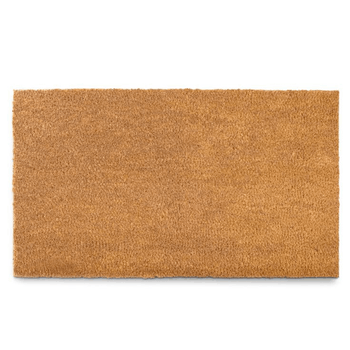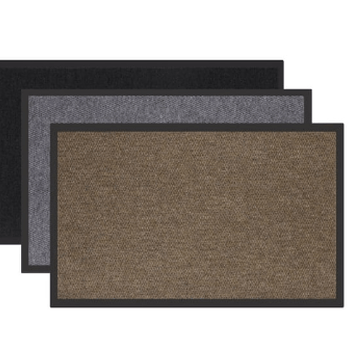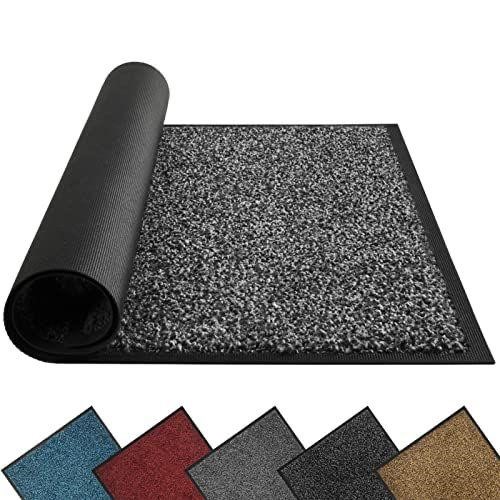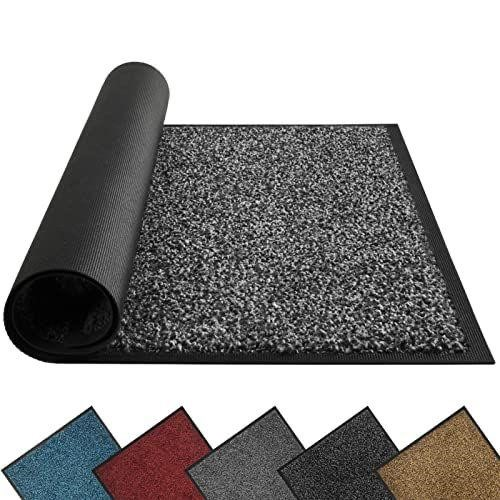Warehouse Mats
R132.25 – R368.00
Warehouse mats are durable, slip-resistant flooring solutions designed to enhance safety and comfort in industrial and commercial environments. They help reduce fatigue, protect floors from damage, and provide traction for workers in high-traffic areas. Ideal for warehouses, loading docks, and storage areas, these mats are made from heavy-duty materials like rubber or PVC, ensuring long-lasting performance and easy maintenance.
Optional
Reduce Accidents, Fatigue, and Damage with Warehouse Floor Mats
Warehouse mats are essential for maintaining a safe, efficient, and productive working environment. These versatile solutions reduce fatigue, minimize accidents, and protect floors and equipment in high-traffic industrial spaces.
Key Features to Consider
Material Quality
- Choose mats made from high-quality materials like rubber, PVC, or polyurethane for durability and flexibility.
Size and Thickness
- Ensure the mat size fits the designated area and offers adequate thickness for its purpose, such as cushioning or heavy load support.
Slip Resistance
- Look for textured or grooved surfaces that provide excellent grip to reduce slipping risks.
Ease of Cleaning
- Low-maintenance mats save time and effort in cleaning, which is especially valuable in high-traffic areas.
Product Technical information for Interlocking Warehouse Mats
| Specification | Detail |
| Material Name | Recycled Flexible rubber Pvc |
| Common Names | Rubber tiles, puzzle mats, locking mats, safety mats, modular flooring |
| Categories | Commercial, Residential, Industrial, Outdoor |
| Thickness | 5mm |
| Certifications | SABS Approved, Safety EN71-1, Flammability EN71-2 |
| Elongation | 100% |
| Contents | 4 tiles per box |
| Warranty | 1-year limited manufacturing warranty |
| Dimensions | 50cm x 50cm per tile |
| Colours | Black, Grey, Blue, Red |
| Minimum Order Quantity | 4 tiles |
| UV Resistance | Limited |
| Shore Hardness | 92A |
| Rolling Weight Capacity | 35000 kgs |
| Weight Per Tile | 1.6 kgs |
| Maximum Load | 5250 kg per tile |
| Operating Temperature | -20°C to 60°C |
| Water Resistance | Yes |
| Durability Features | Resistant to acid, molds, and alkali |
Key Benefits of Warehouse Mats
Warehouse mats offer a versatile and practical flooring solution with a host of benefits that make them ideal for a wide range of environments. Whether you are outfitting a commercial space, a home gym, or an industrial workplace, these mats deliver exceptional performance that stands up to the demands of high-traffic areas. Below are the key benefits that make interlocking PVC rubber mats a top choice for flooring:
- Exceptional Durability: One of the most significant advantages of interlocking PVC rubber mats is their outstanding durability. Made from high-quality materials, these mats are designed to withstand heavy use without showing signs of wear and tear. This durability makes them a cost-effective solution for areas that experience a lot of foot traffic, machinery movement, or other forms of impact.
- Safety First with Non-Slip Texture: Safety is a paramount concern in any environment, and interlocking PVC rubber mats excel in this area. The non-slip texture of these mats provides excellent traction, reducing the risk of slips and falls in both wet and dry conditions. This feature is particularly valuable in environments like gyms, industrial workplaces, and garages, where spills or moisture are common.
- Easy to Clean and Maintain: Another major benefit of interlocking PVC rubber mats is their low maintenance requirements. These mats are resistant to stains, chemicals, and moisture, making them incredibly easy to clean. A simple sweep or mop is usually all it takes to keep them looking fresh and new. This ease of maintenance makes them ideal for commercial settings where cleanliness is essential, such as gyms, fitness centers, and workshops.
- Simple Installation and Replacement: The interlocking design of these mats is a game-changer when it comes to installation and replacement. Each mat features a series of interlocking edges that fit together seamlessly, allowing for quick and straightforward installation. If a section of the flooring becomes damaged, you can easily remove and replace individual tiles without disrupting the entire floor. This modular design not only saves time but also reduces costs over the long term.
Common Uses of Warehouse Mats
Thanks to their durability, safety features, and ease of maintenance, warehouse mats are incredibly versatile and suitable for a wide range of applications. Here are some of the most common uses for these mats:
- Gyms and Fitness Centres: The shock-absorbing properties of PVC rubber mats make them perfect for gyms and fitness centers, where heavy weights and equipment can easily damage standard flooring.
- Garage Flooring: These mats are a popular choice for garage flooring because they can withstand the weight of vehicles while providing a non-slip surface that enhances safety.
- Playgrounds and Sports Facilities: The cushioning effect of PVC rubber mats makes them ideal for playgrounds and sports facilities, where they help reduce the impact of falls and provide a safe playing surface.
- Industrial Workplaces: In industrial settings, these mats provide a durable, non-slip surface that can stand up to the demands of heavy machinery and frequent foot traffic.
- Home Gyms and Workout Rooms: For those setting up a workout space at home, interlocking PVC rubber mats offer an affordable and effective flooring solution that is easy to install and maintain.
Installation Guide for Warehouse Mats
Installing warehouse mats is a straightforward process that can be completed by anyone, even without professional help. Follow these steps to ensure a successful installation:
- Measure and Prepare the Area: Begin by measuring the area where you plan to install the mats. Ensure the surface is clean, dry, and free of debris. This preparation step is crucial for achieving a smooth, even finish.
- Start at a Corner: Lay the first tile at one corner of the room. Starting at a corner allows you to work your way across the space systematically.
- Align and Connect Tiles: Align additional tiles edge-to-edge with the first tile, pressing firmly to engage the interlocking mechanism. The tiles should snap into place easily, creating a seamless surface.
- Cut Tiles to Fit: As you approach the edges of the room, you may need to cut some tiles to fit. Use a sharp utility knife and a straight edge to make precise cuts.
- Secure the Tiles: Once all the tiles are in place, use a rubber mallet to gently tap them, ensuring they are securely connected. This step helps to lock the tiles firmly into place and eliminates any gaps.
Frequently Asked Questions about Warehouse Mats
- What are the best materials for warehouse mats?
- Rubber and PVC are among the best choices due to their durability, slip resistance, and flexibility.
- How often should warehouse mats be replaced?
- The lifespan depends on usage and maintenance but typically ranges from 3-7 years for high-quality mats.
- Can warehouse mats handle heavy equipment?
- Yes, heavy-duty mats are designed to withstand forklifts and other equipment without losing their structural integrity.
- Are drainage mats suitable for cold storage areas?
- Yes, drainage mats made of rubber or similar materials perform well in cold and wet environments.
By investing in the right warehouse mats, businesses can ensure a safer, more efficient workspace that promotes productivity and reduces operational risks.
Related products
-
This product has multiple variants. The options may be chosen on the product page
Plain Coir Select Mat
R1,495.00Original price was: R1,495.00.R1,495.00Current price is: R1,495.00. -
This product has multiple variants. The options may be chosen on the product page
Plain Coir Essential Mat
R1,495.00Original price was: R1,495.00.R1,495.00Current price is: R1,495.00. -
This product has multiple variants. The options may be chosen on the product page
Plain Berberpoint Mat 620
R1,495.00 -
This product has multiple variants. The options may be chosen on the product page
Plain Berberpoint Mats
R1,495.00

